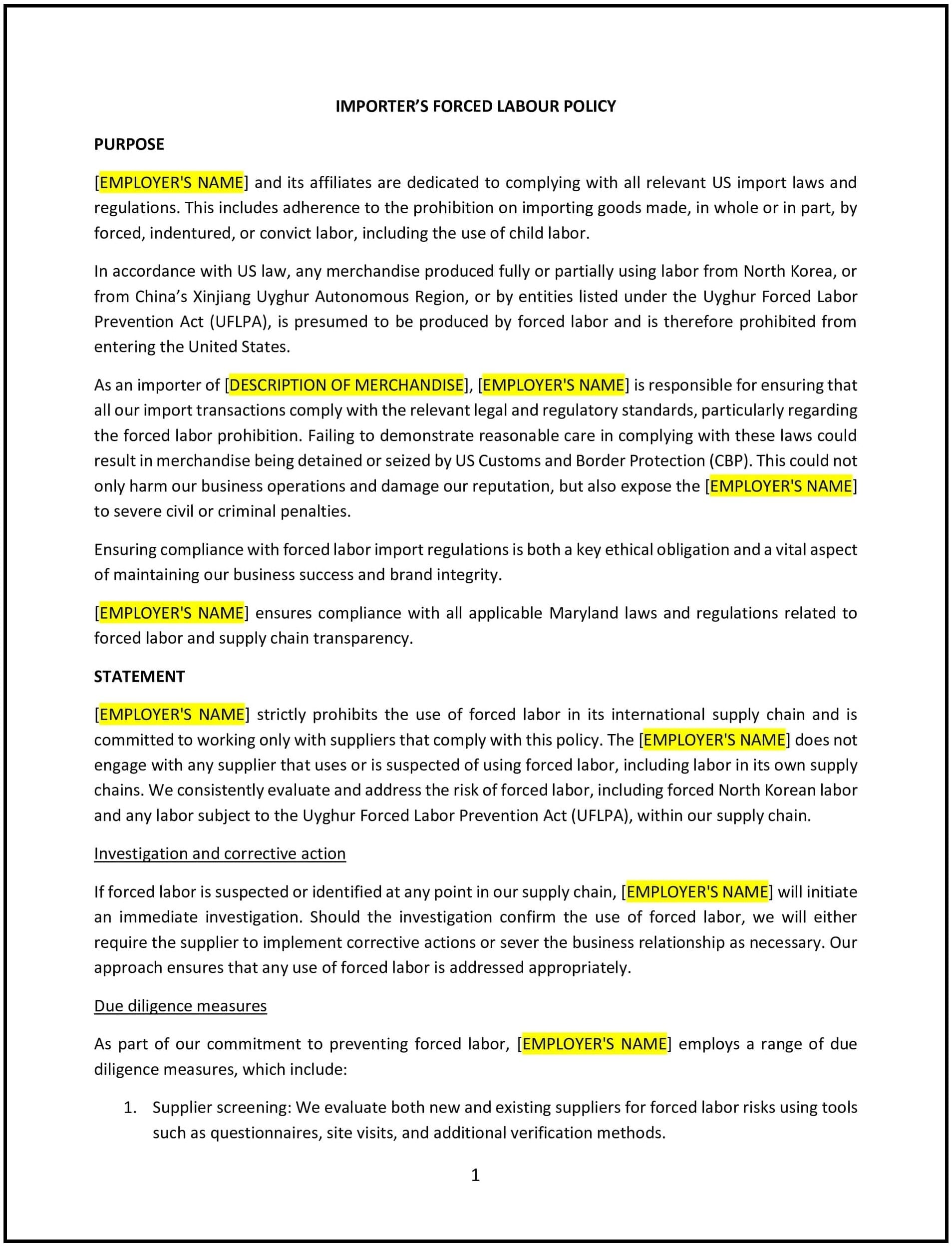Importer's forced labour policy (Maryland): Free template
Got contracts to review? While you're here for policies, let Cobrief make contract review effortless—start your free review now.

Customize this template for free
Importer’s forced labor policy (Maryland)
This importer’s forced labor policy is designed to help Maryland businesses establish a framework for preventing and addressing the use of forced labor within their supply chains. It outlines procedures for monitoring suppliers, ensuring ethical sourcing, and supporting compliance with federal and state regulations related to human rights.
By adopting this policy, Maryland businesses can demonstrate their commitment to ethical practices, protect their reputation, and contribute to the global fight against forced labor.
How to use this importer’s forced labor policy (Maryland)
- Define forced labor: Clearly outline what constitutes forced labor, including practices such as debt bondage, child labor, and coerced work.
- Identify supply chain risks: Conduct assessments to identify suppliers or regions where forced labor is a known risk.
- Establish monitoring procedures: Specify how suppliers will be monitored, such as through audits, certifications, or third-party assessments.
- Require supplier commitments: Mandate that all suppliers sign agreements affirming their compliance with the policy and relevant laws.
- Outline remediation steps: Provide a clear process for addressing violations, including corrective actions, supplier terminations, or reporting to authorities.
- Train employees: Ensure employees involved in procurement and supply chain management understand their roles in enforcing the policy.
- Reflect Maryland-specific considerations: Address local initiatives or partnerships that support ethical sourcing practices within the state.
Benefits of using this importer’s forced labor policy (Maryland)
Implementing this policy provides Maryland businesses with several advantages:
- Promotes ethical sourcing: Ensures that goods are sourced responsibly, free from forced labor.
- Reduces legal risks: Aligns with federal and Maryland regulations, including the Trade Facilitation and Trade Enforcement Act (TFTEA).
- Builds consumer trust: Demonstrates a commitment to corporate social responsibility and ethical practices.
- Protects reputation: Minimizes risks of association with forced labor in the supply chain.
- Supports global human rights: Contributes to efforts to eliminate forced labor and improve working conditions worldwide.
Tips for using this importer’s forced labor policy (Maryland)
- Conduct due diligence: Regularly review supply chain practices and update risk assessments based on new information.
- Collaborate with stakeholders: Partner with industry groups, NGOs, or Maryland-based initiatives to enhance supply chain transparency.
- Communicate expectations: Clearly articulate the policy’s requirements to all suppliers and stakeholders.
- Monitor compliance: Use audits, supplier scorecards, or third-party verifications to ensure adherence to the policy.
- Stay updated: Reflect changes in Maryland and federal laws or global standards in the policy.